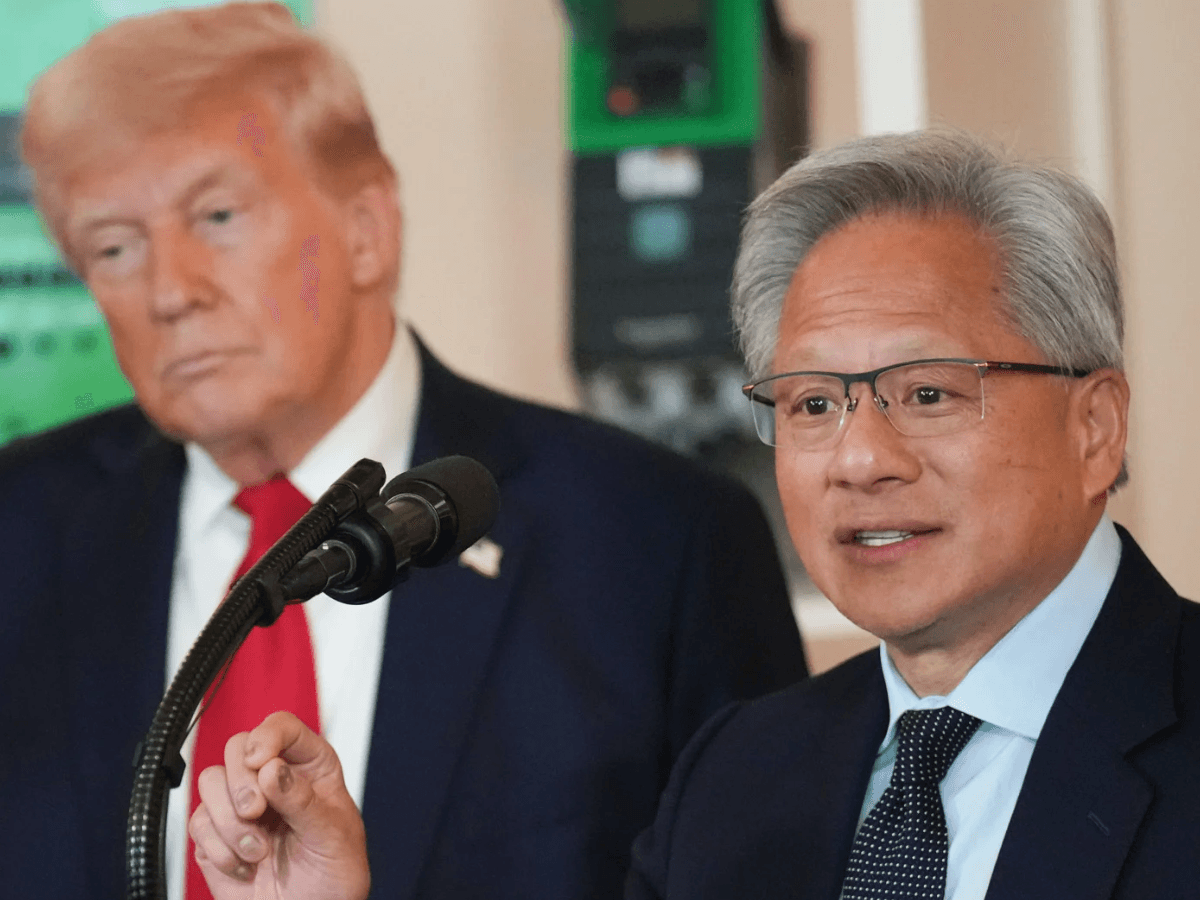Trump Considers Allowing Nvidia H200 Chip Sales to China
President Donald Trump weighed whether to permit Nvidia to export its advanced H200 artificial intelligence chips to China, Commerce Secretary Howard Lutnick said. The decision, reportedly on the president's desk, could reshape U.S. export policy and alter the balance of commercial and strategic competition in AI.

The White House grappled with a high stakes decision over U.S. technology exports as President Donald Trump weighed whether to authorize sales of Nvidia H200 artificial intelligence chips to China, Commerce Secretary Howard Lutnick said in an interview with Bloomberg News. Lutnick said the president was consulting "lots of different advisers" as he considered the request, and Reuters reported the authorization was on the president's desk on Monday.
The H200 family, unveiled two years ago, builds on Nvidia's previous H100 data center processors by adding more high bandwidth memory, a change that allows the chips to move and process large datasets more rapidly. That capability makes them particularly valuable for training and running large AI models, a sector where access to top end GPUs can determine competitive advantage.
The deliberations followed media accounts last Friday that U.S. officials had begun early discussions about the prospect of allowing the sales. The potential move would signal a softer posture toward China after a trade and technology détente brokered by President Trump and Chinese leader Xi Jinping at a summit in Busan last month. Proponents of easing controls argue that unrestricted competition for AI components would benefit U.S. firms by opening a large market and reducing incentives for China to develop indigenous alternatives. Opponents warn that relaxing restrictions risks enabling the application of advanced AI to military and surveillance programs.
Nvidia told Reuters that current U.S. export regulations prevented the company from providing a competitive data center GPU in China, a restriction that has allowed foreign competitors to gain a larger foothold in that market. The company has pushed in public comments and filings for clearer rules that would permit certain commercial sales while protecting technologies deemed sensitive for national security.
The issue sits at the intersection of trade policy, national security and corporate strategy. Since 2022 the United States has placed limits on exports of high performance chips and associated software to China, citing concerns that such computing power could be used to enhance Chinese military capabilities. Any change in policy would require the administration to calibrate technical definitions and licensing rules to distinguish between permitted civilian uses and applications that could threaten U.S. security.
Industry executives and analysts were watching the decision closely because it could reshape the competitive landscape for AI hardware. Allowing Nvidia to sell advanced GPUs in China would likely slow the market share gains enjoyed by non-U.S. suppliers who have stepped in where U.S. firms were restricted. It would also test whether tighter export controls can be reconciled with commercial interests in a sector where market access drives scale and innovation.
The White House did not immediately respond to a Reuters request for comment. The deliberations were likely to touch on licensing frameworks, safeguards and verification measures, though officials have not publicly outlined specific conditions tied to any potential approval. As the president weighed advice from advisers across government and industry, the decision could have consequences for global AI development and for the long running U.S. strategy to control advanced computing exports.

